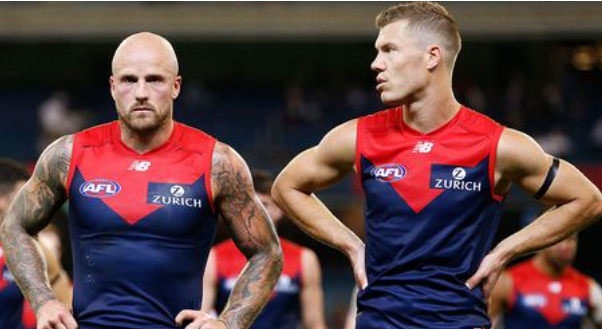Nathan Jones, a former Melbourne captain, has clarified that he was unaware of any secretive drug testing procedures during his tenure at the club. The AFL faced controversy when Federal MP Andrew Wilkie alleged that the league had hidden cases of drug use by players, citing instances where Melbourne players disclosed drug use to the team doctor, Zeeshan Arain, who conducted private and undisclosed drug testing outside of official channels.
Former Melbourne captain Nathan Jones has denied knowledge of any secret drug testing during his time at the club amidst allegations of a cover-up. The scandal emerged after Federal MP Andrew Wilkie accused the AFL of concealing drug use by players. Wilkie claimed that Melbourne players confessed drug use to the former club doctor before undergoing concealed testing off-site to hide positive results. Jones, who played for the Demons for 16 seasons, expressed his astonishment at the allegations of clandestine testing outside the AFL’s policy. He emphasized that during his tenure, testing was based on players volunteering and if positive, they would be targeted for testing rather than being secretly tested off the books.
This is the first time I’ve comprehended what was happening. I had never heard of it unless it was specifically aimed at someone. I believe this information was widely known.
In the past, if a player received a strike, they would go through an educational process. However, there was also some testing done to make sure they were following the right path.
Now, the focus has shifted to avoiding detection, ensuring players are drug-free, and preventing them from getting caught on match day.
Under the AFL’s three strike policy, if a player tests positive for drugs for the first time, they can choose to join a medical support group. According to Tom Morris from 9News, once a player is in this program, it is very unlikely for them to receive another strike. As long as they meet certain criteria, they are safe from further strikes and penalties, except if they are found with drugs in their system on game day.
Jones didn’t flat out reject the suggestion that the Melbourne Football Club has a drug issue, but pointed out that it is an issue that extends beyond just one team in the league and is prevalent in society as a whole. He emphasized that illicit drug problems are not unique to the AFL but are present in various sports and age groups. The AFL has committed to collaborating with the AFLPA and players to enhance the existing illicit drugs policy that has been in place for nearly two decades.
